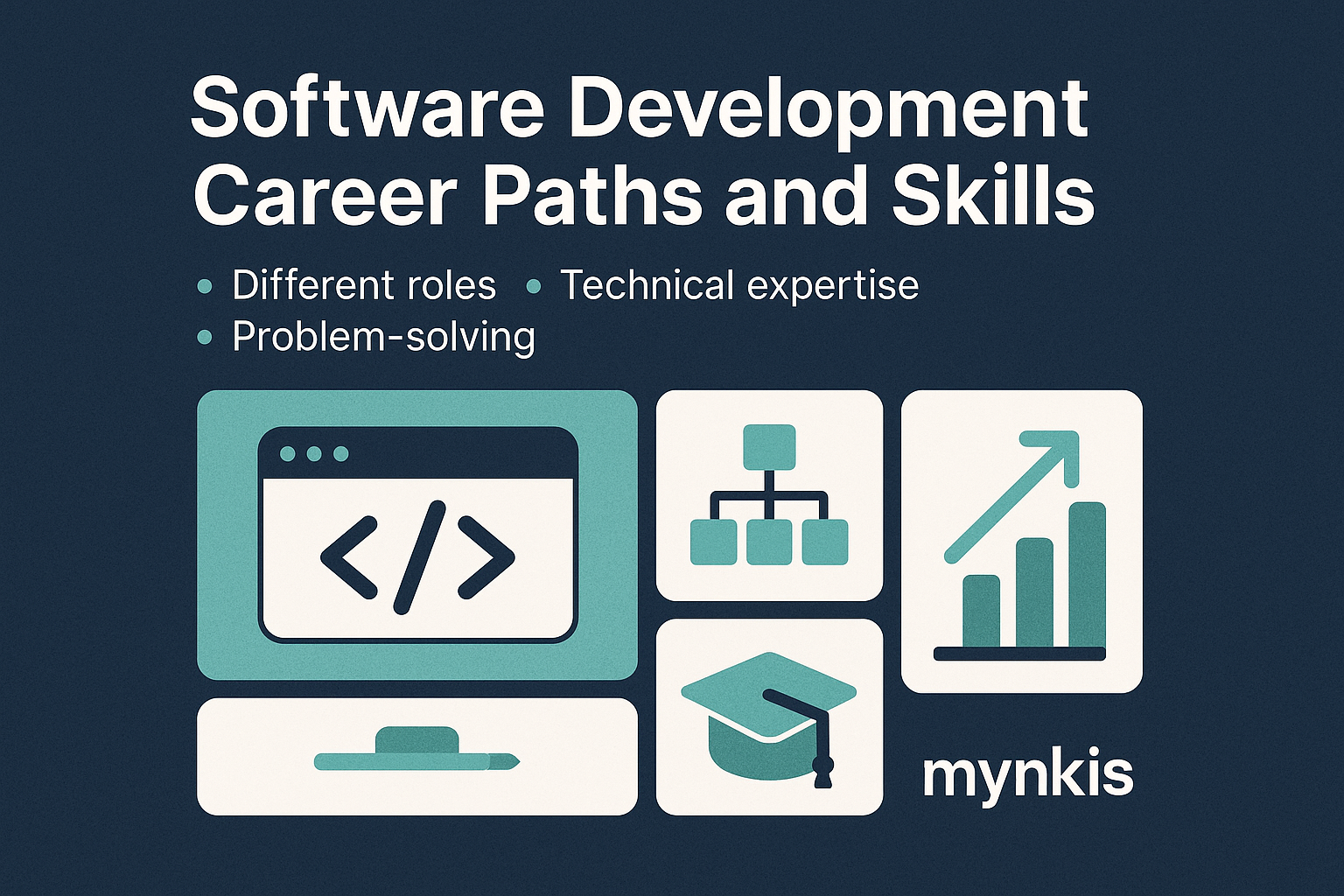Schedule a Demo
When it comes to careers in technology, few fields offer the diversity and potential of software development. From crafting intricate internal tools to developing sprawling customer portals, the role of a software developer is both dynamic and pivotal in shaping the digital landscapes of today's businesses.
Software development isn't a one-size-fits-all career path. The field encompasses a wide range of specialties. On one end, there are front-end developers who focus on user interface and experience, crafting the websites and applications that customers directly interact with. Conversely, back-end developers deal with server-side logic, databases, and infrastructure—the backbone of any digital solution.
Let's not forget full-stack developers, who are the Swiss Army knives of the coding world. They possess the skills to handle both front-end and back-end development, making them highly versatile assets to any team. Beyond these, there are also mobile app developers, specialized in creating applications for iOS and Android devices, and DevOps engineers, who focus on bridging the gap between software development and operations, ensuring smooth and efficient delivery of applications.
The list of skills that modern software developers need to possess can seem daunting. At the heart of any developer's toolkit lies a strong foundation in programming languages like JavaScript, Python, Java, and C#. However, coding proficiency alone doesn't cut it anymore. Today's developers must also be well-versed in methodologies like Agile and Scrum, which emphasize iterative progress, collaboration, and flexibility in development processes.
In my experience working with operations managers, I've seen how crucial the understanding of business needs is for a developer. Being able to translate business requirements into technical solutions can set a developer apart from their peers. Similarly, understanding data structures and algorithms is indispensable for writing efficient code, which can significantly impact application performance.
Soft skills also play a pivotal role. Communication, problem-solving, and teamwork are just as important as technical acumen. Whether it's discussing project scope with stakeholders or collaborating with fellow developers, effective communication ensures that everyone is on the same page.
The journey of a software developer can take many turns. Entry-level positions often include roles like junior developer or software engineering intern. As developers accumulate experience, they might progress to positions like senior developer, lead developer, or architect roles.
Some developers may opt to specialize even further. For instance, those interested in AI might seek positions in machine learning engineering, whereas others might aim to become cloud architects, focusing on infrastructure solutions. Additionally, a significant number of developers eventually step into management roles such as team leads or project managers, guiding other developers and overseeing projects.
And let's not ignore those who choose the entrepreneurial path. Many developers leverage their skills to start their own companies, creating innovative products and services that address market needs.
Embarking on a career in software development requires both education and a commitment to continuous learning. Traditional routes like obtaining a degree in computer science or software engineering are popular. However, numerous bootcamps and online courses offer viable paths for those transitioning from other careers or looking to upskill quickly.
I've worked with teams where self-taught developers brought unique perspectives, showing that formal education isn't the only path to success. Key to preparing for this career is building a strong portfolio. This can be done through personal projects, contributions to open-source projects, or work done during bootcamps and internships.
Networking and community engagement are also critical. Engaging with tech communities, attending conferences like those organized by O'Reilly Media or attending meetups can provide invaluable opportunities for learning and networking with industry leaders.
The tech world moves at breakneck speed, and what's cutting-edge today might be outdated tomorrow. Developers must be committed to lifelong learning to stay relevant. This involves keeping up with new programming languages, frameworks, and tools. For instance, following industry leaders like Google's Developer Blog or Stack Overflow can keep a developer informed about the latest trends and best practices.
Moreover, certifications and continuing education can add to a developer's credibility and skillset. Certifications from organizations like AWS, Microsoft, and CompTIA can be particularly beneficial for roles centered around cloud computing or IT infrastructure.
In the realm of custom software development and enterprise web solutions, it's this adaptability and constant evolution that make the career so engaging and rewarding.
Looking ahead, the field of software development shows no signs of slowing down. With advances in AI, machine learning, and the IoT, developers have a wealth of new areas to explore. Enterprises are increasingly seeking custom software development to tailor solutions to their unique needs, providing developers with more opportunities than ever to innovate.
The importance of high-performance websites and internal tools also underscores the role of developers in ensuring not just functionality but also speed and reliability. As businesses rely more on digital infrastructure, the role of software developers becomes even more critical in maintaining competitive edges.
Considering these trends, continuous investment in both hard and soft skills will be vital for any developer wishing to navigate the exciting yet challenging waters of software development successfully.
